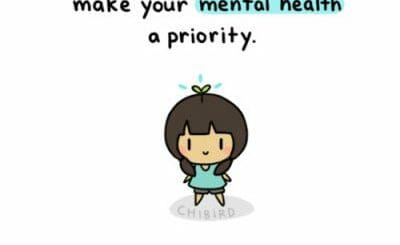Advocate for Yourself

It can be difficult to speak up for what we need, whether in our personal or professional lives. Saying “no” can feel scary, and yet it can make a huge difference in setting good boundaries. If we don’t advocate for ourselves, or are passive, we run the risk of not having our needs met and not being listened to. This can lead us to feeling stressed and upset and can even lower our self-esteem. Aggressively asking for something can also be off-putting and set us back.
There are several different ways to effectively advocate for your needs, such as using assertive communication and setting healthy boundaries. Below are a few options for practicing these.
Assertive Communication
- I statements
- I statements look like: “I feel___ when___”
- For the blanks, try filling it with I feel emotion word when explanation. For the explanation, explain how the actions of others affected you
- I statements can help avoid blaming others while speaking up for what you want.
- Reflective listening
- When having a discussion, reflect/repeat back some of what others are saying to show that you are listening and processing. You can say “I hear that ___” or “It sounds like you feel_____”
- Steer clear of just repeating back everything you hear, also known as parroting, as it can cause frustration. Attempt to switch up your language when reflecting.
Set Healthy Boundaries
- Personal boundaries are the rules and limits we set for ourselves in our different relationships.
- Healthy boundaries involve balance. It means saying no when you want to while also allowing yourself to be open to connection with those you are comfortable with.
- Healthy boundaries also mean honoring your own values and knowing how to communicate your needs.
- Healthy boundaries also mean accepting when other’s say no to you!
Sometimes people may react intensely when you set your own boundaries and advocate for yourself, and that’s okay. Remember that others’ reactions to setting your own boundaries are not your responsibility and that saying no can be an act of self-love.
How do you advocate for yourself? What does assertive communication look like for you?




Recent Comments